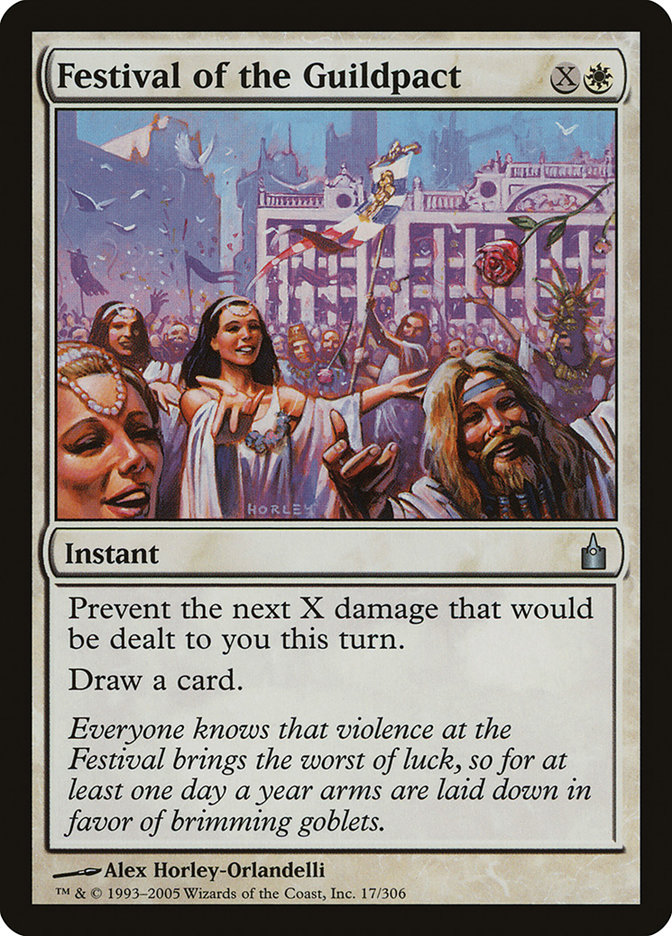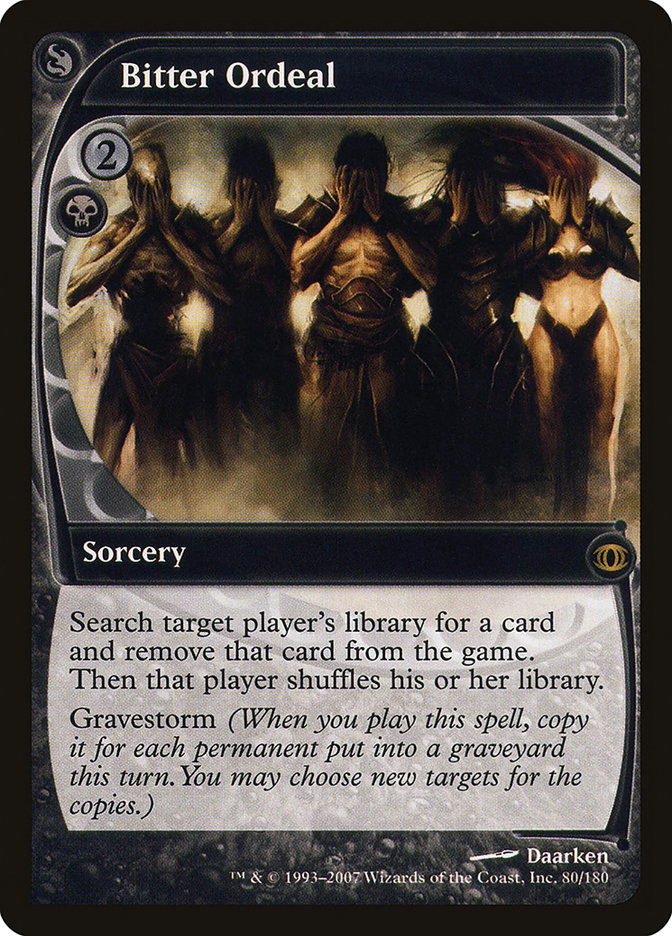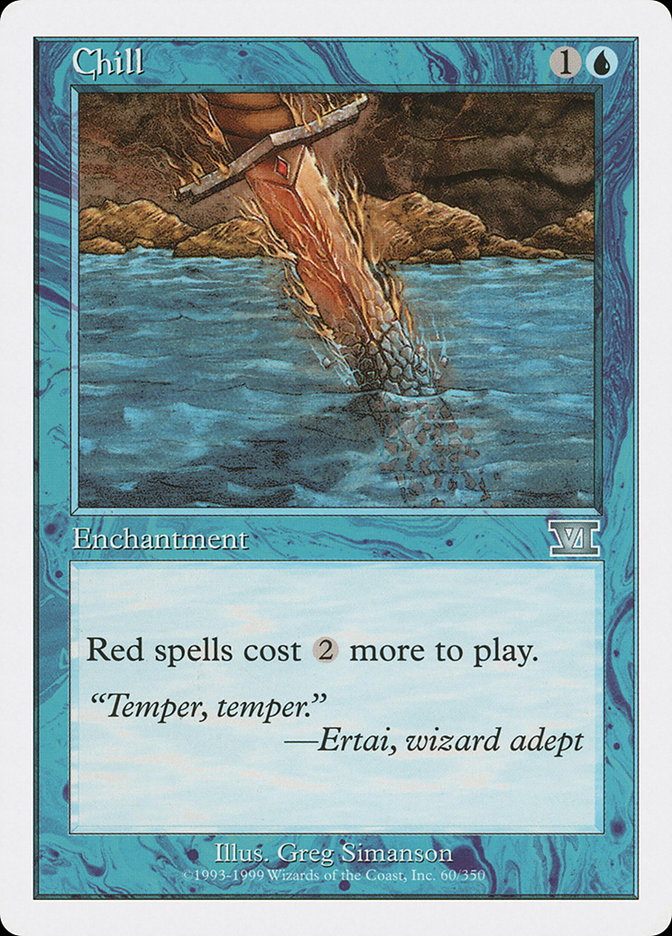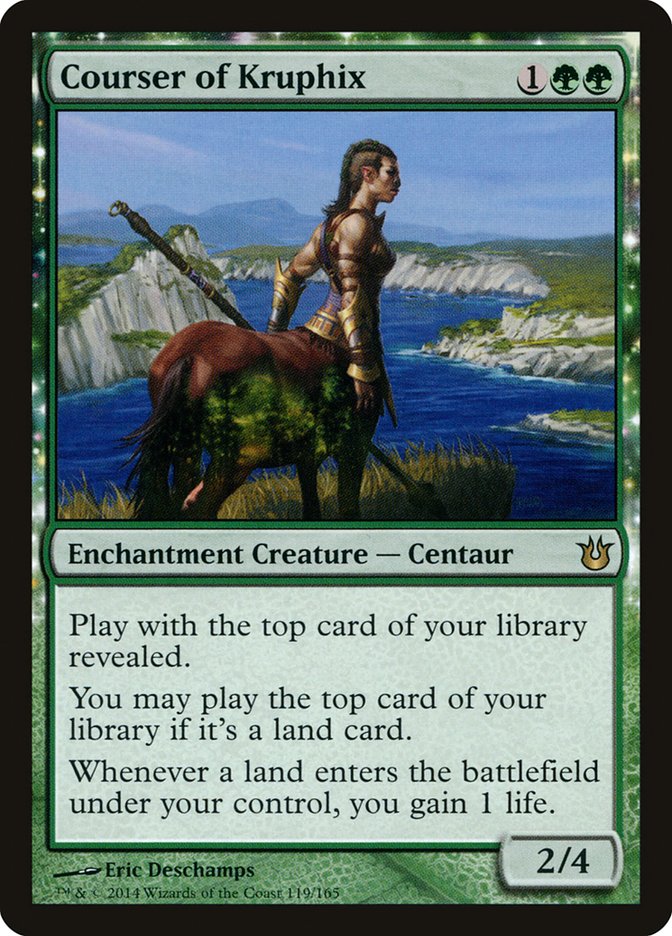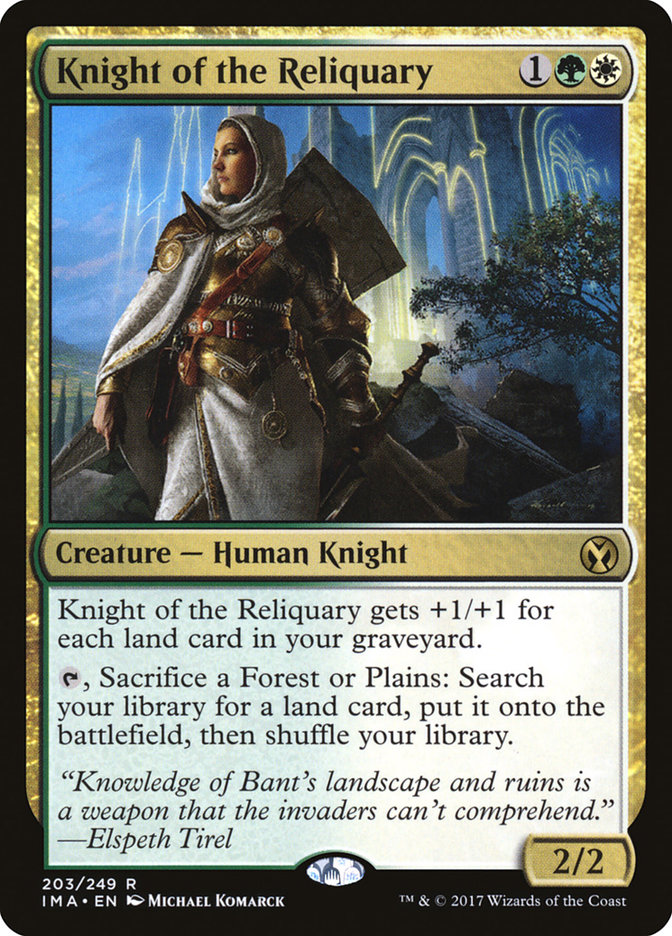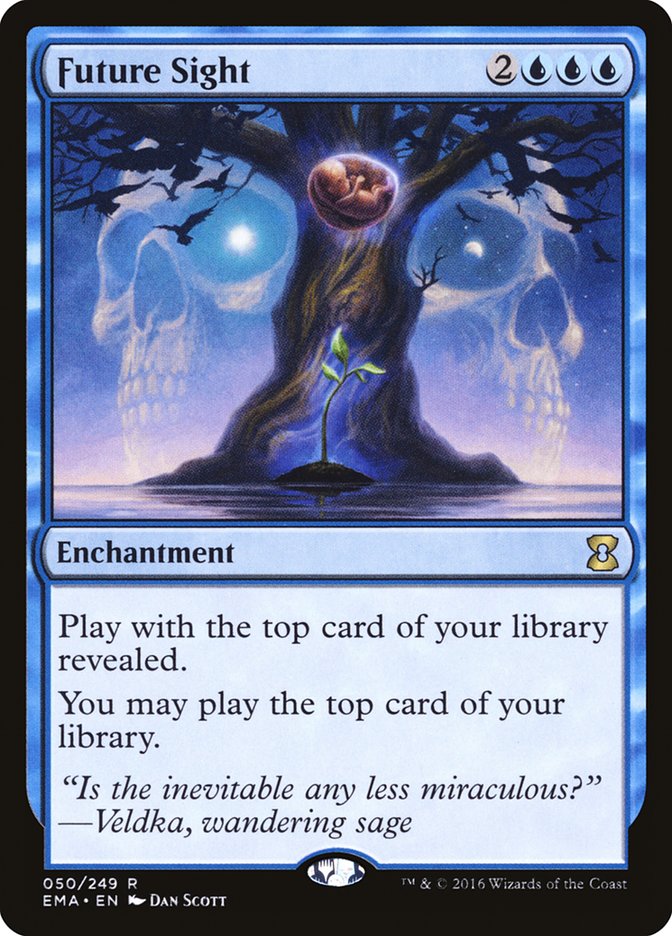With the StarCityGames.com Season Two Invitational approaching this weekend, I’ve spent the last week practicing with different Standard decks, trying to find the exact build I want to bring. The last time I played a Standard tournament was the first weekend that Hour of Devastation was legal, so I’ve had a lot to catch up on in a short amount of time. Well, not as much as normal after a rotation, because as everyone knows Energy decks are simply the best thing to be doing in the format, so I just need to figure out what my exact Energy build will be.
Now, even though it’s been my focus this week, I’m not going to write an entire article about Energy decks in Standard, as the format has already been covered many times over. Instead, I wanted to talk about my approach to playing Magic tournaments in 2017, the biggest reason why I believe I had a successful year.
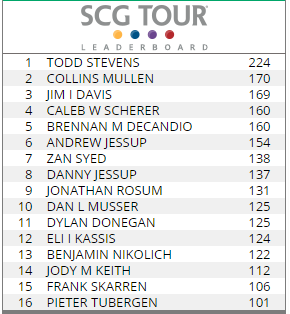
With the winner of the Invitational receiving 50 SCG Points, even if Collins Mullen would win the tournament and I lose every match, I’ll still end up as the winning Points Leader on the SCG Tour in 2017. I ended up playing in eighteen Opens with seven Top 8s, all coming with either playing Eldrazi Tron or G/W Company in Modern. I also moved to Roanoke, VA to produce Magic content full-time this summer, and overall have had a wonderful year playing Magic. So today I wanted to reflect on some ways I approach the game that have helped me have such a successful year, starting with the most important:
Have Fun!
You’re playing the best card game in the world on your weekend in a large convention center with hundreds or thousands of other people. Have a good time! Too many times I’ve seen people having a good tournament lose a match for whatever unlucky reason or play mistake you can name, and it sent them spiraling for the rest of the weekend, and all the time and effort spent preparing for the tournament was gone in a flash. The easiest way to avoid this is to make an assertive effort to have fun while you’re playing Magic.
Think of your own personal tournaments and the ones you have done the best in. I would bet that they all have something in common: that you had a good time during the tournament. Maybe you had a good time because you were winning, or maybe you were winning because you had a good time; that’s probably different for different people. But if you’re having a lousy day and are really upset, then you won’t have a successful tournament. From work to family to anything else, there are plenty of reasons to be stressed when you’re at a Magic tournament, but while you’re at a tournament, it’s best if you can just focus on playing Magic and having a good time.
I know it’s not as easy as it sounds to simply “have fun,” especially when you’re in a losing streak and nothing is breaking your way, but it will honestly make a big difference over the long run. The easiest place to start with enjoying playing Magic more is with your opponent. I always introduce myself and try to keep a fun, light-hearted banter going with my opponent during our match, because if they are having a good time, then it’s easier for me to as well. In between rounds, when many players like to tell their bad beat stories to each other, I prefer to reflect on the bigger picture and take in the whole event, again focusing on the positivity of playing a card game on my weekend.
It would be easy to think that I’m only there for work now that Magic is a full-time job for me, but that leads me into my second item:
Don’t Focus on Wins and Losses
The worst tournaments I’ve had this year have been when I cared too much about how much I was (or wasn’t) winning. Although you can control most of what happens in a match of Magic, the fact is there is still plenty that you can’t control. If I’m at a tournament where I really want to win and therefore worry about my record during the tournament, I’ve never done well at it.
Now, I know that when you play as many Magic tournaments as I do, it’s easier to not invest in your record at any individual tournament than when you don’t travel and prepare for a couple of months for the one Open in your hometown. Putting so much effort into one tournament like that can make it really hard to not focus on wins and losses because you prepared so much for it, but at the end of the day, there is plenty of variance in Magic and you have to accept that you can only do your best. Don’t let that trigger you missed eat you up inside; instead, remember the situation it happened in so you don’t miss the trigger the next time.
If you tie your tournament experience to your wins and losses, then you’re doing yourself a disservice. Instead, tie it to how much fun you had and how much you learned. This will turn you into a more positive thinker who looks for different lines and possibilities from what you would have noticed before, which will help grow your game. Focus on staying positive, keeping an open mind, and learning instead of your record, and the results will follow.
Play Your Deck
In a non-rotating format like Modern, it’s always good to have a couple of decks that you feel proficient with so that you can choose whichever one you feel will be the best given the current metagame. Ideally you could have a rock-paper-scissors option suite such as U/R Gifts Storm, Eldrazi Tron, and Jeskai Control, where one of the three decks will be nicely positioned for the given weekend.
While this is a nice option to have in your back pocket, I don’t think it’s really that necessary and that too many people try to switch decks to often to stay on top of the metagame. Instead of having three decks that you feel proficient with and trying to guess the best one for the weekend, I think it’s better to be an expert with one deck and play that every weekend.
Creatures (29)
- 4 Lord of Atlantis
- 3 Merrow Reejerey
- 4 Silvergill Adept
- 2 Vendilion Clique
- 4 Cursecatcher
- 4 Master of the Pearl Trident
- 1 Tidebinder Mage
- 4 Master of Waves
- 3 Harbinger of the Tides
Lands (20)
Spells (11)
Sideboard

Jonathon Zaczek finished second at GP Vancouver in February with Merfolk at a time when people didn’t believe it was a real deck, but he had been playing the deck for years and knew it inside and out.
Creatures (4)
Lands (20)
Spells (36)

Same for Nicholas Byrd, who won #SCGINDY the following week with Ad Nauseam.
Creatures (13)
Planeswalkers (5)
Lands (24)
Spells (18)

Reid Duke had a Top 4 finish with Jund at #SCGBALT when people thought Jund was dead and no one else was playing the deck on day two.
Planeswalkers (4)
Lands (24)
Spells (32)

Tom Ross also made Top 4 of #SCGKY with 8-Rack, his one time to play 8-Rack this year.
Creatures (27)
- 1 Azusa, Lost but Seeking
- 2 Birds of Paradise
- 4 Tarmogoyf
- 4 Noble Hierarch
- 4 Knight of the Reliquary
- 2 Scavenging Ooze
- 3 Voice of Resurgence
- 4 Courser of Kruphix
- 1 Tireless Tracker
- 2 Renegade Rallier
Lands (23)
Spells (10)

I had my first Top 8 in eight months after playing G/W Company for the first time this year, and I could keep going with plenty of other examples, but my point is this:
Play the deck you enjoy.
I know, more positive thinking, but playing a deck you enjoy and have lots of experience with is much more important in Modern than playing whatever the best deck of the weekend is, especially at paper tournaments like Opens or Grand Prix where you could play against basically anything during any given round. Having the experience of how the games will play out and the knowledge of what cards are important on either side is crucial, so even if your favorite deck isn’t positioned well in the metagame, it’s still probably the best choice for you.
Creatures (29)
- 2 Azusa, Lost but Seeking
- 3 Birds of Paradise
- 1 Eternal Witness
- 2 Kitchen Finks
- 4 Noble Hierarch
- 4 Knight of the Reliquary
- 2 Scavenging Ooze
- 4 Voice of Resurgence
- 4 Courser of Kruphix
- 1 Tireless Tracker
- 2 Ramunap Excavator
Lands (23)
Spells (8)

This is why I’ve continued to play and do well with G/W Company, with four Top 8s and one trophy with it this year, even though I’ve never thought it was a Tier 1 deck on its own. But when I’m piloting it, with how much I like to play the deck and the thousands of matches I have with it, I think it’s the best choice for me winning the tournament.
The takeaway here is to trust your heart and play the deck you love. Sure, there will be times you run into bad matchup after bad matchup, but even then, you’re still playing your favorite deck. The experience and knowledge you have with it will be much more valuable over a longer sample size.
Never Expect to Win
After you’ve had some good tournaments in a row, it’s very easy to feel overconfident and that you can simply show up to a tournament and win. Maybe you’ve made Day 2 of three consecutive Opens, so you aren’t as focused on Day 1 of the next Open because you “know” you’ll make Day 2 anyway. Progress and results in Magic tournaments isn’t linear; just because you’ve reached a level of success before doesn’t mean it will happen again immediately. Each tournament is a clean slate, and you need to play your best each match in order to win.
I fell into this trap at some point last year. I thought I expected to win matches and do well before the tournament started without working hard for them. Because of this I had many bad tournaments in a row, a month or two of not doing very well in any Open. I was showing up overconfident and not playing to the best of my abilities, but I didn’t truly realize that was what was happening, I thought I was just getting unlucky.
After one of the Opens towards the end of last year, I don’t remember which one, I remember Tom Ross gave me the wake-up call I needed to help me finish strong and qualify for the Players’ Championship. After watching a couple of my matches, he flatly told me, “You’re playing really bad,” and he was right. He wasn’t insulting me; he was letting me know that I was better than I had been playing.
We continued to talk about what was wrong, and that was when I realized that I was taking matches for granted and just thinking I could walk up to the table and win them. Tom made me realize that was a common trap to people newer with the game, yet is also something that no one can ever do if they are going to be successful. Each match of Magic you play is difficult and you always need to play your best.
Attacking Is Overrated
Now, this next section doesn’t apply to every deck and every situation, because if you’re playing Affinity, then you’re turning your creatures sideways. But this is something that I really learned from Gerry Thompson and Michael Majors last year when they were playing G/W Tokens in Standard.
Their best way to win mirror matches was to not use any resources trying to kill the opponent until the game was locked up. They wouldn’t make aggressive attacks when they were ahead by a little early in the game, instead taking that small advantage they had and continue to widen it over the course of many turns. I’ve been using this same philosophy in many of the games I’ve played this year to great success.
In fact it’s the strategy that I built G/W Company on. Instead of trying to end the game by reducing my opponent’s life total to zero, I just acquire more and more resources until I’ve reached a point in the game where I can’t lose anymore. Courser of Kruphix is the best at this, as it allows you to hit more land drops, gain more life, and even insures that each card you draw is a spell.
My goal in every game is to make it last as long as possible, strip the opponent of all lands they have on the battlefield so they can’t possibly come back, and eventually win with an absurd force. Of course, this is much harder to accomplish against some decks rather than others, but the principle I’ve used this year is that gaining more resources than my opponent will allow me to win a long game, rather than trying to end games quickly when I have an advantage.
Here’s a basic example of a play I frequently make with G/W Company. Let’s say I just untapped with a 6/6 Knight of the Reliquary on the battlefield and drew another land for turn. At this point I just have lands on the battlefield to go with the Knight, with both Horizon Canopies and Gavony Township still in my deck, but thankfully my opponent, who is playing Abzan, only has a 4/5 Tarmogoyf on the battlefield with no cards in hand or creature-lands. We’re both at twenty life, so I could start attacking and easily win the race before my opponent does.
I’ll never attack in this scenario, as the way I would lose is if my opponent would draw a removal spell for my Knight of the Reliquary and I don’t find an answer to their Tarmogoyf. Instead, I would leave back Knight of the Reliquary as a blocker, and at my opponents’ end step, to play around a discard spell, I would activate it to find a Horizon Canopy and start refilling my hand. A 6/6 Knight would have ended the game after four attacks, but by activating the Knight, it is now an 8/8, which still ends the game in three attacks. I didn’t change my clock at all, and instead acquired another card. I would do this same play the next turn, which would make my Knight a 10/10, and still keep the same clock. In general, I activate Knight of the Reliquary much more than attacking with it.
Now, of course, every game of Magic you play is different, and there are situations or matchups where you have to get very aggressive in order to have a chance to win. In general, however, I often see players trying to press a small advantage they have too aggressively and too early, which allows opponents to turn the tables on them. More patience and resource management was the correct course of action.
Sights Set for 2018
Although there is still one more tournament left for 2017, I couldn’t be happier with how my year ended. I took the lessons I learned from the previous year and they paid dividends this year, as not only did I enjoy tournaments so much more than before, I was more focused on them as well and the results followed. If you take nothing else away from this article, please have it be this: be more positive when playing Magic. You’ll be surprised at the impact that simple step can make.
I’m planning on coming back in 2018 to defend my spot atop the leaderboard by not taking any match for granted and, most importantly, having fun!


